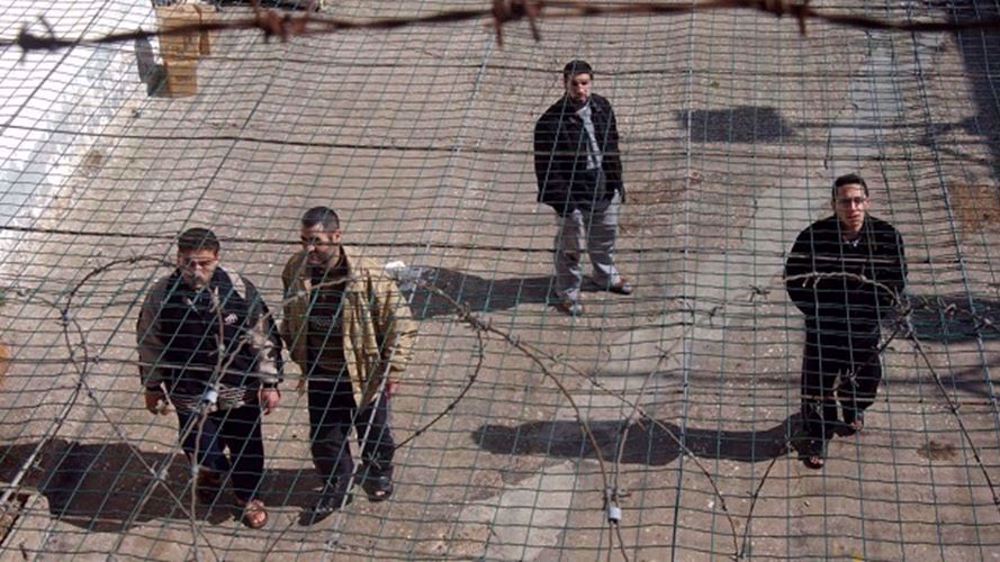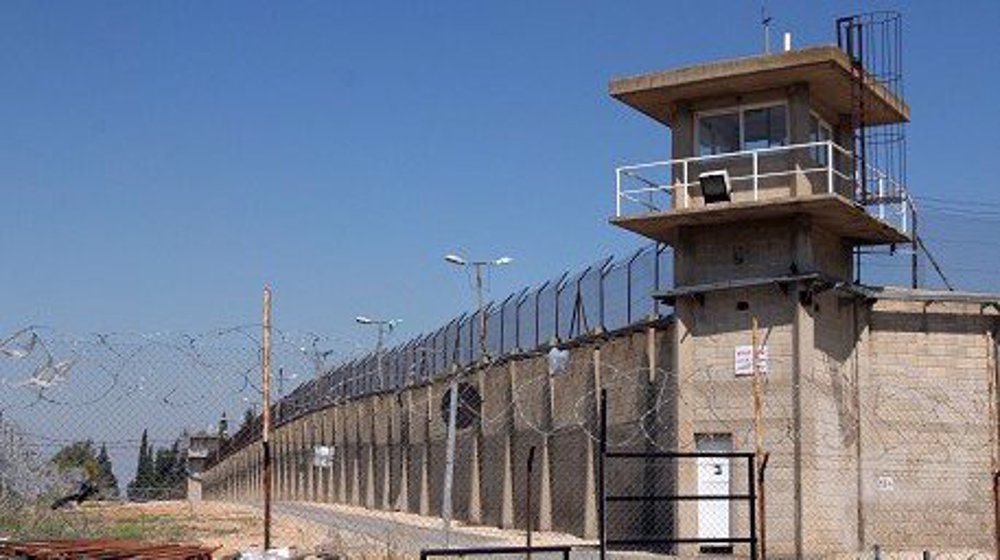Alarm sounds for Palestinian inmate’s health after over 100 days of hunger strike
Concerns are growing over the health condition of a Palestinian prisoner who has been on hunger strike for more than 100 days in protest against Israel’s so-called policy of administrative detention.
Hesham Abu Hawwash, 40, has entered day 111 of his hunger strike in protest at his indefinite, unfair and unexplained imprisonment at the hands of the Tel Aviv regime despite his deteriorating health condition, the Palestinian Information Center reported on Sunday.
The Palestinian prisoner is suffering from frequent loss of consciousness, severe potassium deficiency, heart and liver pain, and constant vomiting.
Hawwash is one of the four prisoners who have been on months-long hunger strikes against their detention without charge. The other prisoners were Kayed Fasfous, Ayyad al-Harimi, and Lo’ai al-Ashqar.
Last month, 34-year-old Fasfous and Harimi, 28, suspended their months-long strikes after Israeli authorities agreed to set them free.
Fasfous finally walked out of an Israeli jail and returned home to his family earlier in the day, after refusing to eat for 131 days in protest.
Facing widespread international criticism, the regime has also agreed to free several other Palestinians, who’ve been on lengthy strikes.
More strikers join in
Another Palestinian prisoner has reportedly remained on hunger strike for four consecutive days to demand Israeli jail authorities to provide him with medical assistance.
Moataz Abido, 41, from the occupied West Bank city of al-Khalil started his hunger strike on December 2 after Israel’s Prison Service (IPS) denied him access to medical treatment, according to Muhjat al-Quds Foundation for Martyrs, Prisoners and the Wounded.
Abido suffers from paralysis in one of his legs after being wounded by Israeli gunfire and has asked the Israeli jail authorities several times to provide him with necessary health care, but to no avail.
Instead, they have put him in solitary confinement after he started his hunger strike.
More than 7,000 Palestinians are reportedly held in Israeli jails. Hundreds of them have apparently been incarcerated under the "administrative detention". Some prisoners have been held in administrative detention for up to 11 years.
Palestinian detainees have continuously resorted to open-ended hunger strikes in an attempt to express their outrage at the detention.
Palestinian inmates have also been subjected to systematic torture, harassment and repression all through the years of Israel’s occupation of the Palestinian territories.
Over a dozen Palestinian lawmakers and nearly 20 journalists are also held in Israeli detention centers, several of them under the same detention policy.
In 2015, Israel approved a law that authorizes force-feeding the Palestinian prisoners on hunger strike, a practice rejected by the UN as a violation of human rights.
The United Nations (UN) and the International Committee of the Red Cross (ICRC), as well as many human rights group have frequently expressed serious concern about hunger strikes’ health condition and call for their immediate release.
IRGC strikes USS Abraham Lincoln aircraft carrier with volley of ballistic missiles
Iranian armed forces to pulverize US bases across the region: Pezeshkian
Enemy will take dream of enslaving the Iranian nation to grave: Army chief
IRGC launches largest barrage of missile strikes at Israeli occupied territories
Assassination of Ayatollah Khamenei ‘open war against Muslims’: Pezeshkian
Iranians rally countrywide to mourn Leader’s martyrdom in US-Israeli aggression
Qalibaf to US, Israel: We will deal such painful blows that you will beg for mercy
Largescale jet, drone attacks carried out against US, Zionist targets: Iran Army















 This makes it easy to access the Press TV website
This makes it easy to access the Press TV website